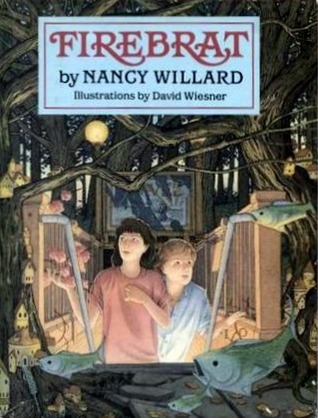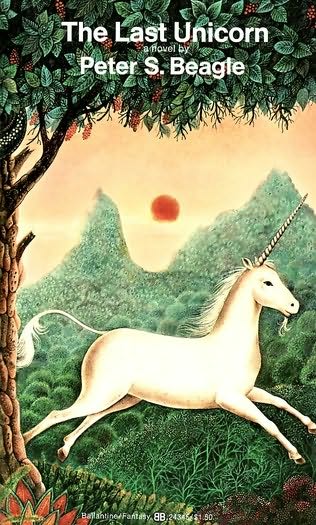Retro Childhood Review: Firebrat

“It will only be for a month, Molly.” “Why me?” she wailed, forgetting her vow of silence. “Why not Betty? She’s older.” “Because I think you’ll do a better job than Betty. You’re the reader in this family. The storyteller… Your grandma’s getting awfully forgetful, Molly. Ever since Grandpa died, she’s been living in the past — she tells the same stories over and over. She needs someone who’ll talk to her and help her organize the shop. You know — keep her in touch with the present.” Silence. “Molly, you’re the one who doesn’t mind a little mess.” He waved his hand at her room. “You’re the lover of mysteries.” “What’s the big mystery about taking care of Grandma?” “Making people well is always a mystery,” said her father sadly. I will forever be indebted to a family that both placed an importance on reading and not only understood how much I loved science fiction and fantasy, but encouraged it with gifts. For my eleventh birthday, my aunt and uncle sent me Firebrat, by Nancy Willard, with illustrations by David Wiesner. I don’t know how they decided on this particular book, but the whimsical cover of fish flying through a forest, showing a young girl and a young boy, with the girl in the lead probably had something to do with it. And where I have read and discarded a hundred other fantastical children’s books, Firebrat has kept its place firmly ensconced on every bookshelf that I have ever owned.
Retro Childhood Review: The Last Unicorn

“I was born mortal, and I have been immortal for a long, foolish time, and one day I will be mortal again; so I know something that a unicorn cannot know. Whatever can die is beautiful — more beautiful than a unicorn, who lives forever, and who is the most beautiful creature in the world. Do you understand me?” “No,” she said. The magician smiled wearily. “You will. You’re in the story with the rest of us now, and you must go with it, whether you will or no.” — The Last Unicorn, by Peter S. Beagle I couldn’t have been more than 5 years old when The Last Unicorn came out on VHS and I watched it so often that my video store had to replace it within a year. My sister and I were absolutely enthralled by the delicate artistry of the unicorn, terrified of the Red Bull, and befuddled by some of the trippier moments (boob tree, anyone?). I always imagined the film to be more born of the imaginations of the production and animation studios, than of Peter S. Beagle’s writing. That is where I was woefully incorrect. This is the first time that I have ever read The Last Unicorn and, though the movie will always be my go-to, I am well and truly in love with this heartbreaking fairy tale.
Retro Childhood Review: The Neverending Story

Bastian Balthazar Bux’s passion was books. If you’ve never spent whole afternoons with burning ears and rumpled hair, forgetting the world around you over a book, forgetting cold and hunger — If you’ve never read secretly under the bedclothes with a flashlight, because your father or mother or some other well meaning person has switched off the lamp on the plausible ground that it was time to sleep because you had to get up so early — If you have never wept bitter tears because a wonderful story has come to an end and you must take your leave of the characters with whom you have shared so many adventures, whom you have loved and admired, for whom you have hoped and feared, and without whosecompany life seems empty and meaningless — If such things have not been part of your own experience, you probably won’t understand what Bastian did next. — The Neverending Story, by Michael Ende When I was 8 years old, my father handed me a book with a magical symbol on the cover, with text in red or green by turn, with a protagonist that for all intents and purposes was ME. I doubt I could ever adequately express what this book meant to me at that particular point in my life, nor in the subsequent years in which I read the book again and again, till the corners of the pages turned soft and the imprint on the cover became something you could only see in the right light at the right angle. I first met the characters of The Neverending Story when the movie was released in 1984. I was enraptured by every aspect of the film, but it was the book that truly captured me. The movie is a near perfect adaptation of the first half of the novel, but it misses some crucial elements that make this book a powerful masterpiece of Children’s fiction.
Adventures in SF Parenting: A SFWA Kerfuffle

Yes, I realize calling the most recent incidence of sexism in SFWA a “kerfuffle” somewhat diminishes the importance of the situation, but I’m going to try to make up for that in body of this post. As you may, or may not, know, I have two daughters. They are 11 (almost 12!) and 13 years of age. They are not considered “normal” by society because they are “geeks;” they are not considered beautiful by society because they don’t look like models; they are not considered equal because they are girls. They are, however, white girls, so they’ll have more opportunities than a lot of people. My challenge is to make them aware that though they are “normal,” “beautiful,” and “equal” in MY eyes, that they are not necessarily any of those things to the broader society in which we live. The further challenge is to teach them that not only do they not HAVE to be the former two (normal & beautiful), but also that they should, nay, NEED, to embrace themselves as amazing human beings regardless of what society tells them. As for the latter (equal), the challenge is to fight EVERY SINGLE INSTANCE of sexism and bigotry that I come across so that they see that it’s one thing to not be equal, but it’s an entirely more awful thing to take that lying down.
Adventures in SF Parenting: The Cell Phone Dilemma

Parents are continuously struggling to keep up with the technology that their children are using. We’re rather like the federal government in that our policies are often decades behind the technological curve (hence the NSA communications debacle). As such, we tend to treat things like cell phones the same way we would, say, a personal diary. If we’re the type of parent who fundamentally doesn’t trust how our children will interact with the world, then we are perfectly willing to violate trust by reading a diary, right? So, therefore, we should also be able to monitor text messages and other interactions that our children might have using their cell phones. Here’s the thing though… We’ve spent decades letting our teenagers talk on the phone without listening in on the other line or hovering over their shoulder, haven’t we? The only difference between a phone call and a text message is that the latter makes it EASIER for us to keep tabs on our children. However, I’ve always been uncomfortable with what these actions (reading texts, instant messages, facebook conversations, reading diaries, etc) teach our children. Particularly given broader questions of privacy in modern society.
Adventures in SF Parenting: The Wild, Wild Web

It may be reasonably obvious at this point that I am somewhat of a free-range parent. Sure, I have my lines, my boundaries, my helicopter moments, but for the large part I firmly believe that staying a bit hands off produces more self-reliant, independent, and creative children. Lenore Skenazy has a great way of pointing out that there is a difference between RISK and RISKY. Risk is a natural part of life after all, there is a 1 in 700,000 chance each year that I will get struck by lighting if I go outside (Risk), but that chance goes up dramatically if I hike to the top of a hill in an empty field while carrying a metal rod in the middle of a lightning storm (RISKY). I’d like you to keep all that in mind as I continue.

